Poetry and the Prophet Muhammad
- Aslam Abdullah
- Aug 24, 2025
- 6 min read
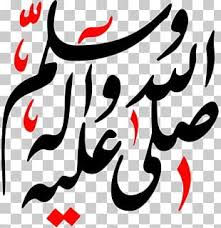
Poetry has always been more than art. It is history, memory, and sometimes even a weapon of change. While historians often write about kings, battles, and empires, poets capture something different: the emotions, struggles, and hopes of ordinary people. They record what it felt like to live through events, and they preserve voices that might otherwise have been forgotten. Poetry can inspire, console, and even challenge society to think differently.
In the Islamic world, poetry has played a central role in expressing love and devotion for the Prophet Muhammad ﷺ. Across centuries and continents, poets have written verses that not only praise him but also inspire Muslims to live by his teachings. These poems belong to a tradition called madīḥ nabawī—praise poetry dedicated to the Prophet. From the earliest companions to modern poets, this tradition has shaped Muslim culture and spirituality in lasting ways.
From the deserts of Arabia to the courts of Persia, from Indian scholars to African Sufi saints, and even in China’s imperial palaces, poets have praised the Prophet Muhammad ﷺ with love and devotion. Their verses do more than praise; they preserve history, transmit values, and inspire believers.
The Qur’an calls the Prophet “a mercy to all creation,” and poets across centuries have echoed this description, each in their own voice and language. Through poetry, the love for Muhammad ﷺ has been kept alive, connecting generations of Muslims to their faith and to the man who embodied God’s mercy on earth.
The First Poets of Islam
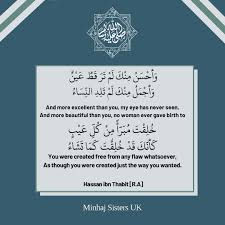
Hassan ibn Thabit – The Poet of the Prophet
Hassan ibn Thabit was a close companion of the Prophet and is often called the “Poet of the Prophet.” Before Islam, he was already a respected poet in Arabia, but after embracing Islam, he used his gift to defend Muhammad ﷺ against mockery and to strengthen the Muslim community.
Hassan’s verses often described the Prophet’s noble character and radiant appearance. He even incorporated Qur’anic language into his poetry, giving it a spiritual depth. In one famous couplet, Hassan said that it was not he who praised the Prophet, but rather that his words gained honor simply because they mentioned Muhammad. This deep reverence shows how poetry was already becoming a way to honor and protect Islam.

Al-Khansāʾ – A Voice of Grief and Strength
Al-Khansāʾ was one of the greatest female poets of pre-Islamic Arabia. She was famous for her elegies, poems mourning the death of her brothers. Her verses expressed raw grief and captured the deep sense of loss common in her society.
After she converted to Islam, her poetry underwent a change in meaning, although her style remained powerful. Al-Khansāʾ met the Prophet and later encouraged her four sons to fight in the Battle of Qādisīyah (637 CE). All of them were killed, yet she bore the tragedy with remarkable faith, saying she was grateful they died as martyrs. Her story reflects both the emotional power of poetry and the transformation of values under Islam.
Classical Poets of Devotion
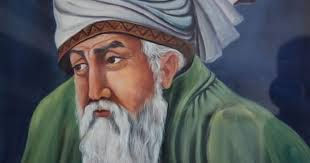
Rumi – The Poet of Love
Perhaps the most famous Muslim poet worldwide, Jalal al-Din Rumi (1207–1273) is best known for his mystical verses about divine love. For Rumi, the Prophet Muhammad ﷺ was more than a teacher of laws—he was the perfect guide to God.
Rumi described the Prophet as the “Mother of the Path of Love,” meaning that all spiritual love begins with him. His poems portray the Prophet as a reflection of God’s mercy, embodying divine compassion for humanity. In the Masnavi, his six-volume masterpiece, Rumi even begins with Muhammad’s name, showing that the journey to God begins with devotion to the Prophet.
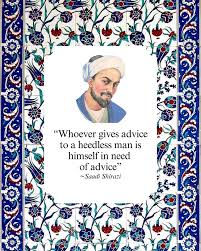
Saadi – The Poet of Wisdom
Saadi of Shiraz (1210–1291) was another great Persian poet who praised the Prophet in his writings. He called Muhammad ﷺ the “Perfect Man,” the very foundation of creation’s order and beauty. Saadi warned that anyone who strayed from the Prophet’s example would never reach their proper destination.
In his poetry, Saadi argued that true wisdom is found not in philosophers or worldly knowledge, but in following the Prophet. One of his well-known quatrains ends with:
“He reached the highest place by his Perfection. He removed darkness by his Beauty. Beautiful are all his Attainments. Send blessings to him and his family.”
This reflects how Saadi combined the elegance of style with deep devotion.
Modern Voices of Devotion
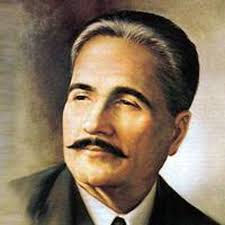
Allama Iqbal – The Poet of Revival
Muhammad Iqbal (1877–1938), known as the “Poet of the East,” was a philosopher, reformer, and one of South Asia’s greatest poets. He saw the Prophet Muhammad ﷺ as the ultimate model of human potential and as the key to reviving the Muslim world.
Iqbal’s poetry laments the decline of Muslims and calls for a return to the Prophet’s teachings. He portrays Muhammad not just as a religious figure, but as a leader who could inspire unity, dignity, and self-realization. By writing about the Prophet with such passion, Iqbal reminded Muslims of their shared heritage and encouraged them to rise again.
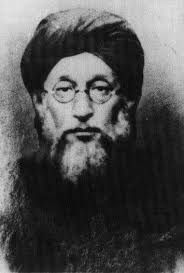
Imam Ahmed Raza Khan – The Poet of Praise
In India, Imam Ahmed Raza Khan (1856–1921) wrote poetry filled with devotion and longing for the Prophet. His collection Hada’iq-e-Bakhshish includes some of the most famous Na’ats (praise poems) in Urdu. His masterpiece, Mustafa Jaan-e-Rahmat, describes the Prophet as a fountain of mercy, a source of light, and the beloved of God.
Imam Ahmed Raza often used vivid images of nature and the heavens to describe Muhammad’s qualities. He also wrote detailed praise of the Prophet’s physical features in a style called Hilya. His poetry is still widely sung in gatherings today, keeping alive a tradition of heartfelt devotion.
Altaf Hussain Hali
Altaf Hussain
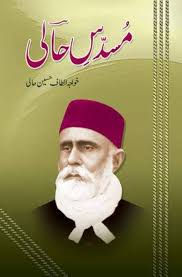
Hali’s Musaddas is one of the most important works of Urdu poetry in the 19th century. Written in 1879, it reflects on the condition of Muslims in India following the decline of the Mughal Empire, particularly after the 1857 War of Independence. The poem is written in the musaddas form (six-line stanzas).
Musaddas is not only poetry but also social commentary.. It combines history, religion, and social reform in simple, emotional language.
Hali begins by describing the early days of Islam, when Muslims lived with strong faith, simplicity, justice, and unity. He praises the achievements of Muslim civilization in the fields of knowledge, culture, and governance, highlighting the greatness of earlier generations.
He then contrasts the past with the present situation. Furthermore, he points out the weaknesses of Indian Muslims in his time—such as laziness, ignorance, internal conflict, and abandonment of actual Islamic values. According to him, this decline led to the loss of power and respect.
The poem reflects on the political collapse of Muslims, especially in India. Hali connects their downfall to moral and spiritual weakness rather than just external factors like colonial rule. Hali observes how Western education, science, and governance are rising, while Muslims remain stuck in backwardness. He criticizes blind imitation of the West but encourages Muslims to learn modern knowledge while keeping their faith strong. Hali does not leave the poem on a negative note. He urges Muslims to return to the values of Islam: honesty, hard work, unity, and education. He believes that revival is possible if Muslims strike a balance between their faith and modern learning, The poem ends with a message of hope. Hali calls for a spiritual and intellectual awakening that can restore dignity to the Muslim community.
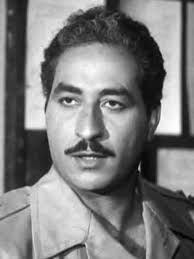
Ahmed Shawqi – The Prince of Poets
Ahmed Shawqi (1868–1932), Egypt’s “Prince of Poets,” wrote Nahj al-Burda, a long praise poem inspired by the famous Burda of Imam al-Busiri. Shawqi’s work combined classical Arabic style with modern themes, linking the glory of Islam’s past with the challenges of his own time.
He wrote this poem after returning from exile, reflecting on Islamic history and his renewed connection to faith. Nahj al-Burda remains one of the masterpieces of modern Arabic praise poetry.
Beyond the Arab World
China – An Emperor’s Poem
Surprisingly, praise for the Prophet Muhammad ﷺ even came from outside the Muslim world. Hong-Wu, the first emperor of the Ming Dynasty in China (r. 1368–1398), wrote a 100-word eulogy honoring the Prophet. Though not a Muslim himself, he respected Islam and ordered mosques to be built.

His poem describes Muhammad as a guide, a mercy to the world, and a leader who brought light to humanity. Copies of this eulogy were placed in mosques across China, showing how the Prophet’s message inspired even non-Muslims.
Africa – A Tradition of Praise
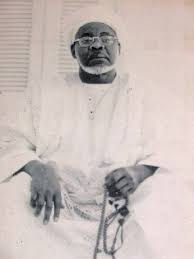
In West Africa, poets also celebrated the Prophet through rich traditions of praise poetry.
Ali Boubdim of Guinea wrote a Diwan of 578 verses in honor of the Prophet.
Kramo Talbi, another Guinean poet, followed with his own Diwan of 211 verses.
Shaykh Ibrāhīm Niasse of Senegal composed heartfelt praise poems such as Tears into Pearls, describing the Prophet’s radiant face like the full moon.
Cheikh Ahmadou Bamba, also from Senegal, made poetry central to his Sufi teachings, blending love for the Prophet with guidance for his community.
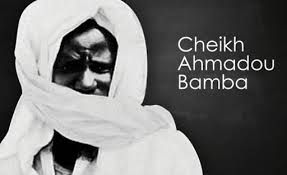
These African poets ensured that devotion to Muhammad was expressed in local languages and traditions, enriching the global culture of madīḥ nabawī.



Comments